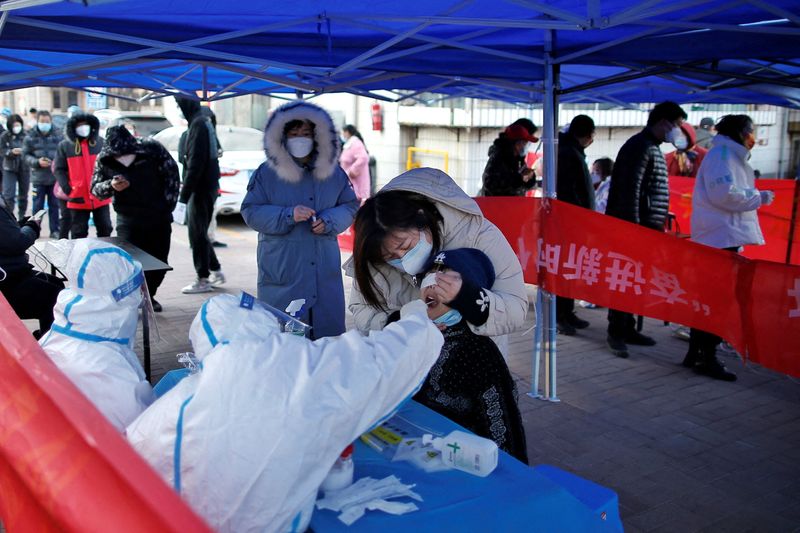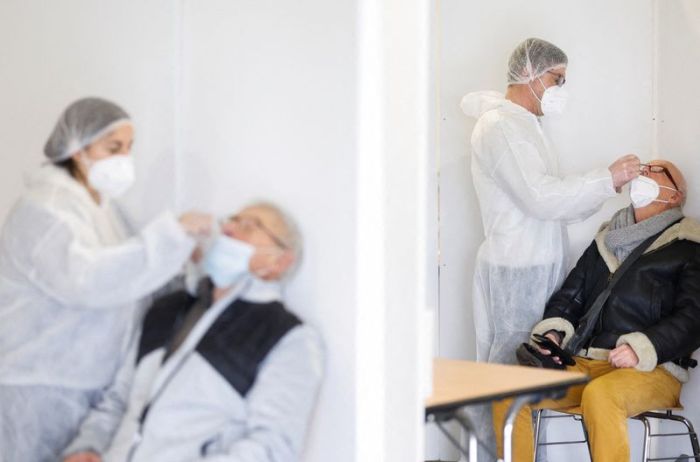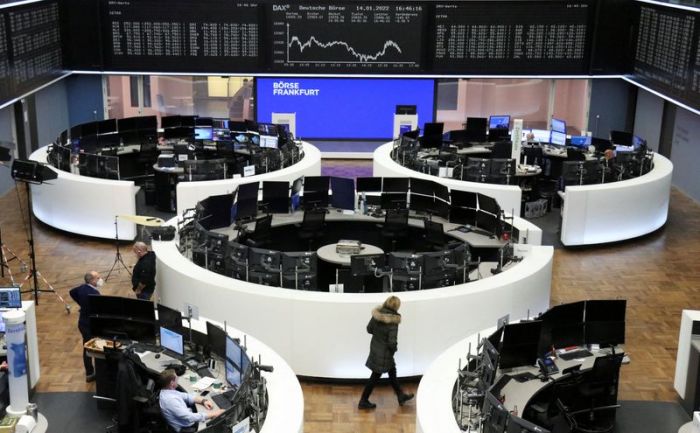BEIJING (Reuters) -The Chinese city of Tianjin reported fewer COVID-19 cases on Tuesday after measures such as conducting mass testing and locking down some areas to curb the highly transmissible Omicron variant, steps that have also affected the local operations of foreign firms such as Boeing <BA.N.
Tianjin, a key port in northern China, reported 18 domestically transmitted cases with confirmed symptoms for Monday, National Health Commission (NHC) data showed on Tuesday. That marks the lowest daily number in a week.
NHC official He Qinghua said on Saturday the risk of the Tianjin outbreak spreading to other areas was gradually declining, as new cases in the past three days were mainly in people who had been quarantined.
The China unit of U.S. planemaker Boeing said on Tuesday that a small number of employees has been impacted by various “community-level lockdowns” during the Tianjin outbreak.
“We are currently maintaining a normal level of operation,” Boeing China said in a response to Reuters queries.
Assembly plants for Volkswagen and Toyota in Tianjin remain closed due to the outbreak.
The component factory of Volkswagen in the city has resumed some of the shifts since Thursday last week, according to a statement from Volkswagen Group China on Tuesday.
Tianjin has reported over 300 symptomatic local cases of the coronavirus from the current cluster, which has also spread infections to two other cities. It remains unclear how many local cases exactly in Tianjin were Omicron.
Tianjin’s caseload remains smaller than many outbreaks overseas, but it has made it harder for locals to leave town, sealed up higher risk communities and launched multiple rounds of testing among its 14 million residents, under China’s guideline to quickly curb any flare-up as soon as possible.
The nation’s capital Beijing, about to stage the Winter Olympics Games starting Feb. 4, reported one local case with confirmed symptoms for Monday. The infected individual was a close contact of a local Omicron case reported for Jan. 15.
China is urging people to wear masks and gloves when opening mail, especially from abroad, as authorities in Beijing and Shenzhen have said the possibility that imported goods had caused the infection of Omicron in the cities “cannot be ruled out”.
The central Chinese city of Anyang, which detected Omicron in an outbreak that it said could be traced back to a person arriving from Tianjin, reported 94 local symptomatic cases for Monday, the highest daily count since Jan. 8.
Anyang has stepped up its curbs over the weekend, demanding residents not to leave their communities or villages at will.
China reported a total of 127 local cases with confirmed symptoms for Monday, down from 163 a day earlier.
There were no new deaths for Monday, leaving the death toll at 4,636. As of Jan. 17, mainland China had 105,258 confirmed symptomatic cases, including both local and imported ones.
(Reporting by Roxanne Liu, Stella Qiu, Nori Shirouzu, Albee Zhang and Ryan Woo; Editing by Kim Coghill, Michael Perry and Raju Gopalakrishnan)

























